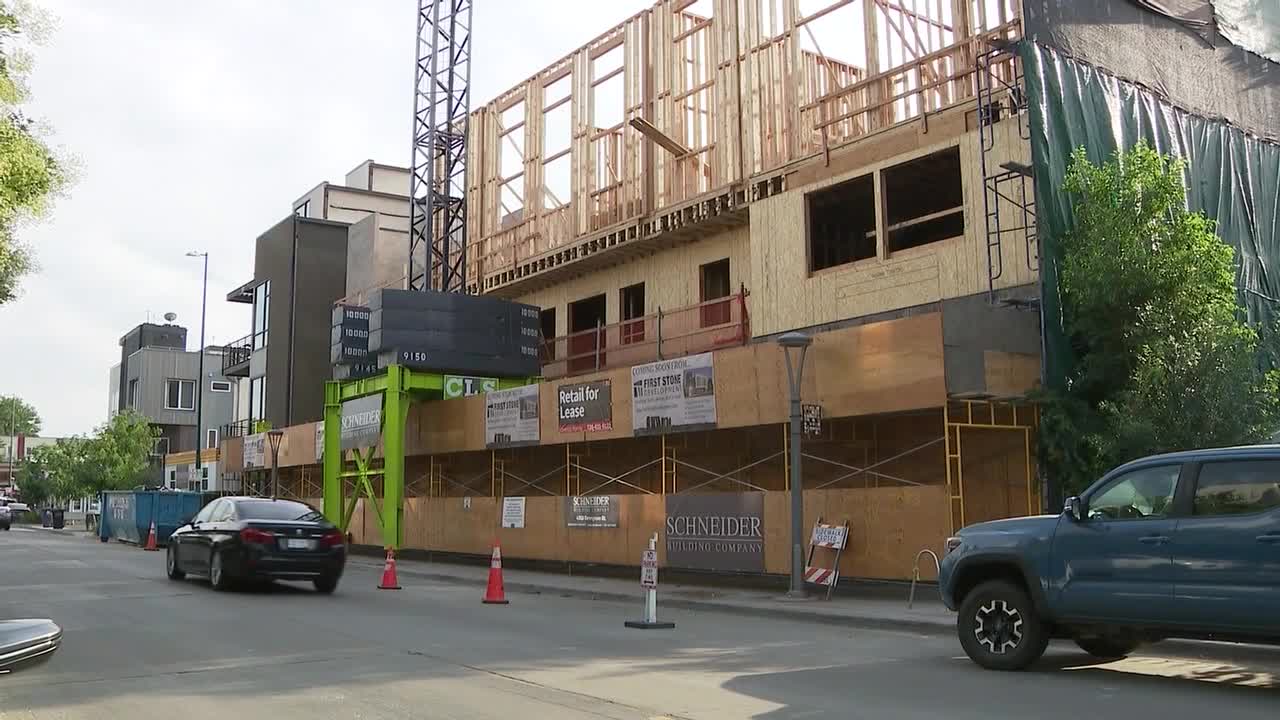DENVER — The Denver City Council voted to abolish parking minimums for new projects across the city as a way to spur more housing development, increasing supply in order to bring housing costs down.
Previously, Denver apartment buildings needed at least one parking space per unit, while bars and restaurants were required to provide roughly four spaces per 1,000 square feet. Downtown developments and single-family homes were already exempt from the rules.
Now, developers across the city can still build as much parking as they want with any new project, but they no longer have a minimum requirement and can choose to build none.
Denver7 has previously covered concerns from people living in neighborhoods where street parking can be tough to find, and some worry the change will make the problem worse.
Read our previous coverage below:
- Denver City Council to vote on changing minimum parking space rules
- Parking minimum requirements for new construction in Denver could soon go away for good
- Beloved brewery patio cut in half for parking as Denver eyes bigger changes
However, local leaders and advocates say overall, Denver needs more housing, not more parking.
They point to several properties around the city where developers built even more parking than required, as well as parking lots that often sit empty.
“Eliminating parking minimums gives us more space to build housing. It also makes it cheaper to build housing because building parking is really expensive as well,” said Caroline Leland, who works on housing and land use policy at the Southwest Energy Efficiency Project (SWEEP).
A recently published study from the University of Denver found removing the parking minimums in a simulation model resulted in a “notable increase in multifamily production,” with an average housing supply increase of about 8% annually.
- Read the study below
Denver7 went to the Colorado Apartment Association to hear what developers think about the idea. Drew Hamrick, senior vice president of government affairs, agrees with the argument that removing minimums will facilitate more growth.
“We advocate for as much flexibility in parking as a local government can stand,” he told Denver7. “Because generally, a developer will build development with a level of parking that the consumers that are going to live there demand.”
But Hamrick said it’s only “one step” toward bringing building costs down.
“It's not as financially impactful as many people would have you believe,” he said. “Our national organization estimates that regulatory compliance costs are about 40% of the cost of new housing development. Now, one of those costs is parking requirements, but there's a whole bunch of others, too.”
Another goal of no minimums is steering Denverites to other ways to get around town.
“This policy is really about flexibility and choice. Parking will continue to get built,” said Leland. “This policy will enable people to have more transportation options, letting them choose to bike or walk or use public transit rather than being forced to drive everywhere because of the massive parking lots that surround homes and businesses.”

But some city leaders say Denver’s infrastructure is too car-dependent for this change to be effective.
“Until transit is clean, safe and reliable, people are not going to use it,” City Council Member Amanda Sawyer said at Monday night’s meeting, urging reform for the Regional Transportation District (RTD). “And that means they have to get in their cars.”
Denver7 asked Leland about the idea that city transit needs to improve before this kind of change.

“It's kind of like a chicken and the egg situation,” she replied. “Mandated parking is reinforcing car dependence, and so as long as it's easiest for people to drive a car, then that's what we're going to keep doing.”
In the end, the Denver City Council voted 9-3 in favor of removing minimums. Sawyer also voted no because she believes the measure does not go far enough to address the over-building of parking spaces, and that parking maximums should be enforced on new developments instead.
The citywide removal of minimums officially takes effect on Monday, August 11. Ryan Huff, a spokesperson for the city’s Department of Community Planning and Development, confirmed to Denver7 that parking lots previously built to fulfill a parking minimum can now be converted to other uses, like a patio space, as long as they still comply with the city’s zoning code.
The move comes as the state of Colorado rolls out a new law this summer requiring jurisdictions to remove parking minimums for developments near public transit. That move has led to pushback from local governments across the state, and a lawsuit from several Front Range mayors, arguing the one-size-fits-all law does not have their best interests in mind and is an overreach superseding home rule authority.






